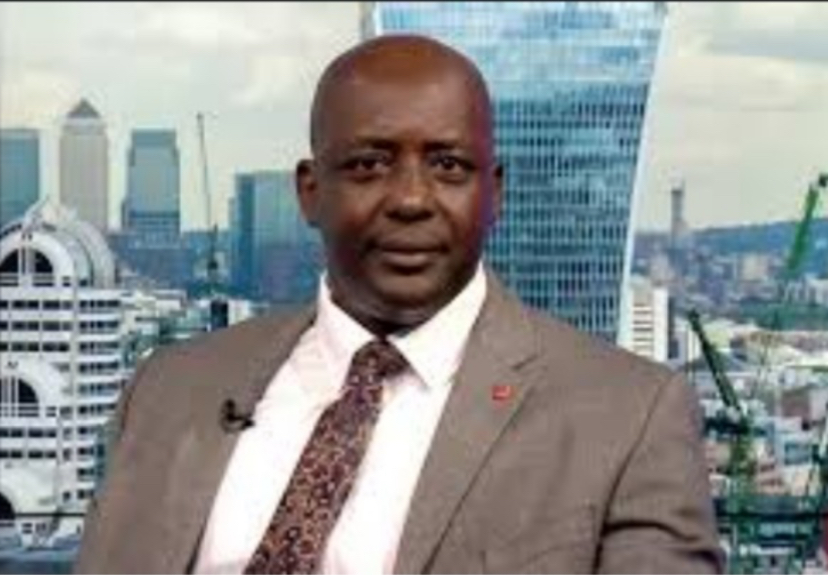By Ibrahim Alusine Kamara (Kamalo)
In what is shaping up to be one of Sierra Leone’s most explosive banking scandals, Guaranty Trust Bank (SL) Ltd. and three of its top officials — Ikubolaje Nicol, Augustus Issa Turay, and Patrick Adeyemi Eegunnike — are currently facing five criminal charges in the High Court. The charges range from conspiracy to defraud and falsification of accounts to forgery and failure to maintain proper records under the Anti-Money Laundering Act of 2024.

At the center of this multi-billion-leone scandal lies an alleged calculated effort by these senior bank officials to defraud a prominent businessman, Mr. Hussein Ibrahim Bazzy, by forging his signature and misappropriating a loan facility without his knowledge or consent.
The Case Unfolds
According to court filings, the bank and its executives are accused of forging Mr. Bazzy’s name and signature on an offer of banking facility dated 31st May 2017 — a document which fraudulently states that Bazzy personally guaranteed a loan of Le 7.6 billion (Old Leones) to Admiral Trading, a company owned by Mr. Jihad Saleh. Mr. Bazzy insists he had no knowledge of, involvement in, or benefit from this transaction.
This alleged forgery follows an earlier 2015 loan arrangement where Bazzy agreed to stand as guarantor for a US$200,000 loan granted to Saleh’s company through GT Bank — a transaction fully repaid by 2016, with both collaterals (including Bazzy’s property) remaining intact.
Yet, in a shocking twist, GT Bank officials allegedly manipulated documents years later — misusing Mr. Bazzy’s letterhead, forging his signature, and falsely presenting him as a repeat guarantor in a separate 2017 loan to Admiral Trading. Internal memos and banking facility letters were manufactured without his consent or knowledge, implicating him in a Le 7.6 billion credit scheme from which he derived zero benefit.
“A Web of Lies and Forgery”
Investigations revealed that GT Bank executives Ikunbolaje Nicol and Augustus Turay were not only aware of the misrepresentation but were actively involved in orchestrating the fraudulent paper trail. Internal memos were drafted to redirect unused and unapproved loan funds to Admiral Trading, despite Bazzy’s name and property being listed fraudulently as guarantor collateral.
Disturbingly, this scheme was allegedly approved at multiple levels of the bank’s hierarchy — including board-level signoff — with glaring procedural violations and no application letter or consent from the purported guarantor.
Despite repeated requests to release his collateral, Mr. Bazzy’s property remained held by the bank. Instead of rectifying the issue, GT Bank escalated matters — first by falsely assuring Mr. Bazzy that the matter was a clerical error, then by initiating court action to recover the alleged debt, and later, by filing criminal complaints against him at the Transnational Organized Crime Unit (TOCU).
When pressed for evidence of Mr. Bazzy’s involvement, the bank allegedly failed to produce any documentation — a fact that led to his release on self-bail and a growing cloud of suspicion over GT Bank’s motives.
Systemic Banking Malpractice?
The scale of misconduct alleged in this case points to systemic malpractice within GT Bank. From the illegal use of customer letterheads to the unauthorized transfer of loan liabilities, and ultimately, a cover-up disguised as procedural banking, the case raises urgent questions about the integrity of financial institutions operating in Sierra Leone.
Bank insiders, including Magnus Turay and Moiwo Farmah, have reportedly confirmed that no application letters existed for the consolidation of these so-called non-performing loans — a mandatory requirement under GT Bank policy. This exposes a disturbing pattern of negligence or, worse, complicity among key decision-makers at the bank.
Justice on Trial
With proceedings now active in both the High Court and the Magistrate Court (where GT Bank also faces charges of fraudulent conversion), public confidence in the financial sector hangs in the balance. If the charges are proven, the fallout could result in regulatory overhauls, license sanctions, and possibly criminal convictions for some of Sierra Leone’s most powerful bankers.
As Justice A. R. Mansaray presides over the unfolding legal drama, all eyes remain fixed on the judiciary — will the rule of law prevail over elite financial corruption, or will this too be swept under the rug of impunity?
One thing is clear: this is more than a banking dispute — it is a test of institutional accountability in Sierra Leone.
